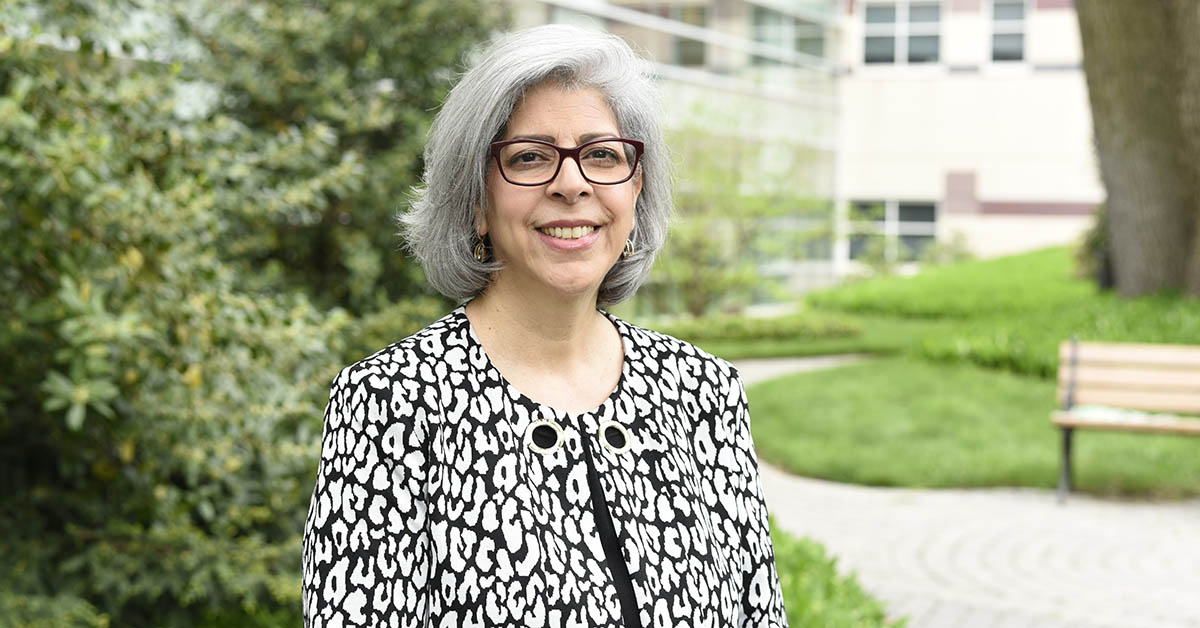
PHILADELPHIA (May 11, 2021)—Cancer health disparities is a broad and complex issue that requires new approaches and adjustments to the existing cancer continuum framework. Evelyn González, MA, senior director of Fox Chase Cancer Center’s Office of Community Outreach and Engagement, joined a team of experts from across the United States to co-lead a process to develop a framework aimed at addressing cancer care disparities.
According to the authors, data suggest health disparities in the United States exist across many areas of cancer care and disproportionately affect medically underserved populations who may encounter cultural, linguistic, economic, and other barriers to care.
“This work outlines strategies and policies to effectively improve equity of care for medically underserved populations,” said González.
Researchers began with an environmental scan to identify 84 experts across eight stakeholder groups and 44 patient organizations. Of the 50 experts invited to participate in a roundtable discussion, 33 participated.
The cancer continuum addresses the entire journey from prevention to end-of-life. In a pre-meeting survey, experts identified three focus areas within the screening, diagnosis, treatment, and survivorship domains of this continuum to address cancer care disparities. Common barriers within the domains were found in three areas: patient navigation, community engagement, and implementation of healthcare system changes.
Experts suggested incorporating lay navigators into the process to identify, share, and address cultural and linguistic barriers impeding care. The lay navigator ensures that a patient is scheduled for a follow-up appointment and arranges nonclinical support services such as certified medical interpreters, and also addresses financial issues or arrangements for transportation if needed, González said.
This change will enable nurse navigators and social workers to focus on clinical care while increasing their understanding of the barriers that negatively impact care and outcomes. Experts felt that developing and sharing metrics will standardize approaches across the field and enable the identification of best practices.
Community engagement was another area of agreement. “Creating community linkages with local organizations is key to building trust and better understanding the barriers within a community. It also creates opportunities to share resources such as education, community cancer screenings via mobile screening programs, and facilitates navigation,” said González.
Among other methods, experts suggested health systems could coordinate with patient advocacy groups, evaluate how specific populations look for information on health care, and create patient support networks with individuals with similar backgrounds, diagnoses, and treatments.
“Finding new ways to communicate with our patients is really important,” said González. “In terms of how populations look for trusted health information, we know that our communities use social media to look for information. So we started a community Facebook page where we can disseminate information and promote access to existing services the community may not be aware of.”
Lastly, to improve policy interventions, the experts made a variety of recommendations, including improving high-prevalence cancer screening in underserved areas, covering routine care costs in clinical trials, and providing more representation of underserved populations in patient-reported outcomes, among others.
“We recognize not every institution has the resources to address all of the recommendations. However, the list is expansive and creates opportunity to expand organizational capacity to meet the needs of diverse communities,” said González.
The article, “Development of an Actionable Framework to Address Cancer Care Disparities in Medically Underserved Populations in the United States: Expert Roundtable Recommendations,” was published in JCO Oncology Practice.